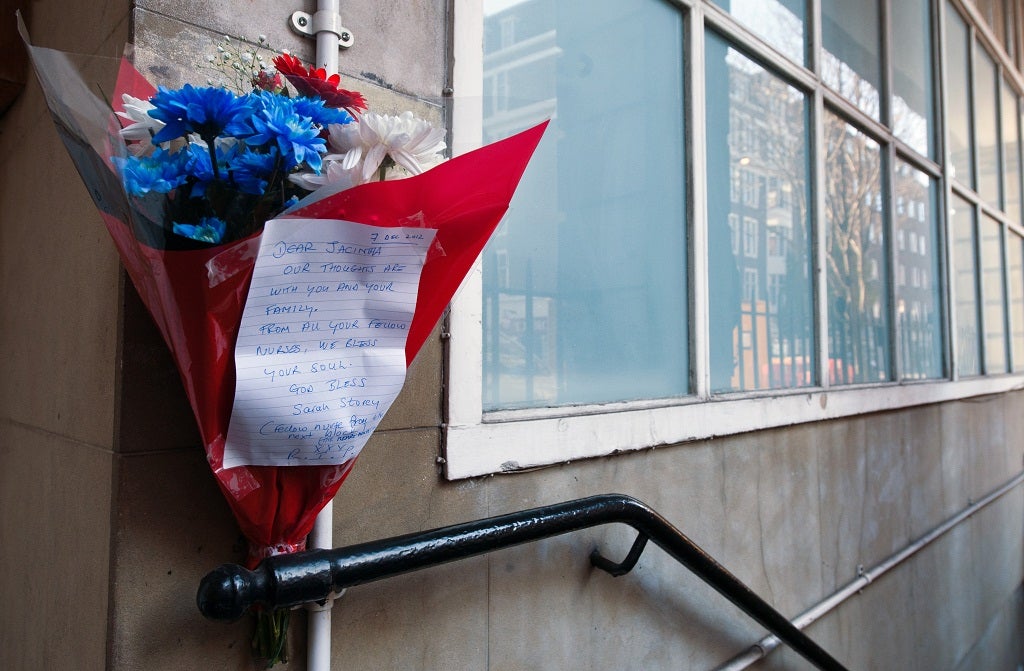Public must question itself too over nurse Saldanha's death
In some way, doesn't this tragedy follow on from our hunger for royal news?


One morning last week, I drove through the area in central London where the Duchess of Cambridge was being treated for her chronic morning sickness. The traffic moved very slowly, partly because the road was lined with satellite trucks, and partly because people were slowing down to see what was happening, like on the motorway when there is an accident.
What they could see was 100 or so photographers and reporters standing behind barricades with lenses and eyes trained on the main entrance of the King Edward VII Hospital. Later last week, after the Duchess had been discharged, I drive past the same scene. No barricades, no jostling photographers, just countless bags of rubbish waiting for collection (this could be, but is not intended to be, a metaphor). Not a sign that this nondescript street had been the world's focus.
As the horrible events of last week unfolded and we were overtaken by the desire to find someone, or something, to blame for the death of the nurse who had the desperate misfortune to pick up the phone to a cocksure Australian radio presenter, I recalled that scene outside the hospital.
Hindsight makes it easy to point the finger at the prank call. And it's possible to conclude that a culture of casual cruelty is to blame. We take a wicked, voyeuristic delight in people being exposed as stupid, or cruel, or eccentric (witness Big Brother), so, to a certain extent, we were all in the joke that ended in the death of Jacintha Saldanha.
In fact, some of those whose voices rise up in condemnation now doubtless found the recording hilarious in the first place. But instead of blaming, can't we just take responsibility? In some way, doesn't this awful chain of events follow logically from our insatiable appetite for royal news? Isn't our overwhelming desire to strip away the carapace of mystique from the world's most famous family also a contributory factor? The legions of journalists outside the hospital were there for a reason: to slake the public thirst for news, gossip, speculation, cod psychology, quack medical analysis, or anything that appears to keep them in the know about these celebrity-drenched figures.
The discourse relating to last week's tragedy was not dissimilar to the swirl of accusations about the closure of the News of the World. It was the phone-hacking journalists who were guilty. And the police, of course. And what about the politicians? Very few talked about the culpability of the public, who bought the paper in their millions and revelled in the tales of scandal and misbehaviour, and gave not a thought to how those stories were unearthed.
I'm not saying we all have poor Saldanha's blood on our hands, but it's not quite as simple as we may think. The Royal Family have an interest in retaining their air of mystery. That makes them a hot ticket for newspapers and broadcasters, and that gives journalists a challenge. The prank call had tragic consequences, but was not ill-conceived. We want to know everything. That's all.

Join our commenting forum
Join thought-provoking conversations, follow other Independent readers and see their replies